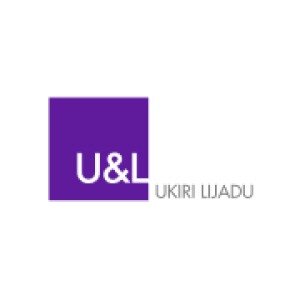Best Tax Increment Financing Lawyers in Maitama
Share your needs with us, get contacted by law firms.
Free. Takes 2 min.
List of the best lawyers in Maitama, Nigeria
About Tax Increment Financing Law in Maitama, Nigeria
Tax Increment Financing (TIF) is a public financing method that is used to subsidize infrastructure, community improvement, and other related projects by diverting future property tax revenue increases that result from the development. In Maitama, Nigeria, TIF is applied to encourage investment and development within designated areas by allowing municipalities to reinvest the generated tax revenue back into infrastructure and public service improvements to spur further growth.
Why You May Need a Lawyer
Engaging with Tax Increment Financing schemes can be complex and typically involves various legal considerations. You may need a lawyer if you are:
- A developer seeking to participate in a TIF project and want guidance on legal obligations and compliance.
- A property owner within a TIF district who needs advice on how the financing affects your property taxes and rights.
- A local government entity in need of drafting or reviewing TIF proposals or compliance issues.
- An investor looking to understand the legal terms, risks, and benefits associated with TIF projects.
- Facing disputes or compliance issues related to a TIF project.
Local Laws Overview
In Maitama, Nigeria, the laws pertaining to Tax Increment Financing outline the establishment of TIF districts, the administration of funds, and the eligible uses for TIF revenues. Key aspects include:
- The eligibility criteria for areas to qualify as TIF districts, often focused on blighted or underdeveloped regions.
- The process and legal documentation required to set up a TIF.
- Guidelines on how TIF revenue can be utilized, including infrastructure improvements, land acquisition, or economic development projects.
- Regulations with respect to public consultations and stakeholder engagement in the TIF process.
Frequently Asked Questions
What is the purpose of Tax Increment Financing in Maitama?
The purpose of TIF in Maitama is to stimulate economic development and improve public services by reinvesting future tax increments back into project areas.
How does TIF affect property taxes?
TIF does not increase property taxes; rather, it freezes the existing taxes in a TIF district and uses the incremental increase in tax revenue as a result of development for public improvement projects.
Who can propose a TIF project?
Proposals for TIF projects can be made by developers, local governments, or community organizations aiming to promote economic development and infrastructure improvements.
What are the risks involved in a TIF agreement?
Risks can include project underperformance leading to insufficient tax increments, misalignment with community goals, and potential disputes over project scope and funding allocation.
What types of projects typically qualify for TIF funding?
Projects may include infrastructure development, public facilities improvement, environmental cleanup, and other projects that could lead to economic revitalization.
Are residents consulted during the TIF process?
Yes, public consultation is typically required to ensure community support and to address any concerns about the impact of the proposed TIF project.
How is TIF revenue monitored and managed?
TIF revenue is usually managed by a municipal authority with oversight provided by law, requiring regular audits and public reporting to ensure transparency and accountability.
Can a TIF district be dissolved? If so, how?
Yes, a TIF district can be dissolved if the objectives have been met or if the project is deemed unfeasible. Legal procedures, which may include public hearings and consultations, will need to be followed to dissolve a TIF district.
What are the legal documentation requirements for TIF projects?
Typically, documentation will include development agreements, project plans, financial projections, and compliance reports, which must be submitted to relevant municipal authorities.
Can TIF be used for residential development?
While primarily focused on commercial projects, TIF can be used for residential projects if they contribute to broader economic and infrastructure development goals within a district.
Additional Resources
For additional insights and assistance on Tax Increment Financing in Maitama, you may refer to:
- The Abuja Municipal Area Council (AMAC), for local governance and TIF district information.
- The Ministry of Finance, for guidelines on public financial management related to TIF.
- Relevant law firms specializing in real estate and public financing law.
- The Chamber of Commerce and Industry, for networking with stakeholders in potential TIF projects.
Next Steps
If you need legal assistance with Tax Increment Financing in Maitama, consider the following steps:
- Consult with a local attorney who has experience in public financing and real estate law.
- Gather all relevant documents and information related to your TIF project or issue.
- Schedule a consultation to evaluate your specific legal needs and explore strategic options.
- Contact relevant government authorities to understand the procedural requirements and comply with local regulations.
With proper legal guidance and support, stakeholders can navigate the complexities of Tax Increment Financing, ensuring alignment with legal standards and maximizing the benefits for the community and investors alike.
Lawzana helps you find the best lawyers and law firms in Maitama through a curated and pre-screened list of qualified legal professionals. Our platform offers rankings and detailed profiles of attorneys and law firms, allowing you to compare based on practice areas, including Tax Increment Financing, experience, and client feedback.
Each profile includes a description of the firm's areas of practice, client reviews, team members and partners, year of establishment, spoken languages, office locations, contact information, social media presence, and any published articles or resources. Most firms on our platform speak English and are experienced in both local and international legal matters.
Get a quote from top-rated law firms in Maitama, Nigeria — quickly, securely, and without unnecessary hassle.
Disclaimer:
The information provided on this page is for general informational purposes only and does not constitute legal advice. While we strive to ensure the accuracy and relevance of the content, legal information may change over time, and interpretations of the law can vary. You should always consult with a qualified legal professional for advice specific to your situation.
We disclaim all liability for actions taken or not taken based on the content of this page. If you believe any information is incorrect or outdated, please contact us, and we will review and update it where appropriate.









